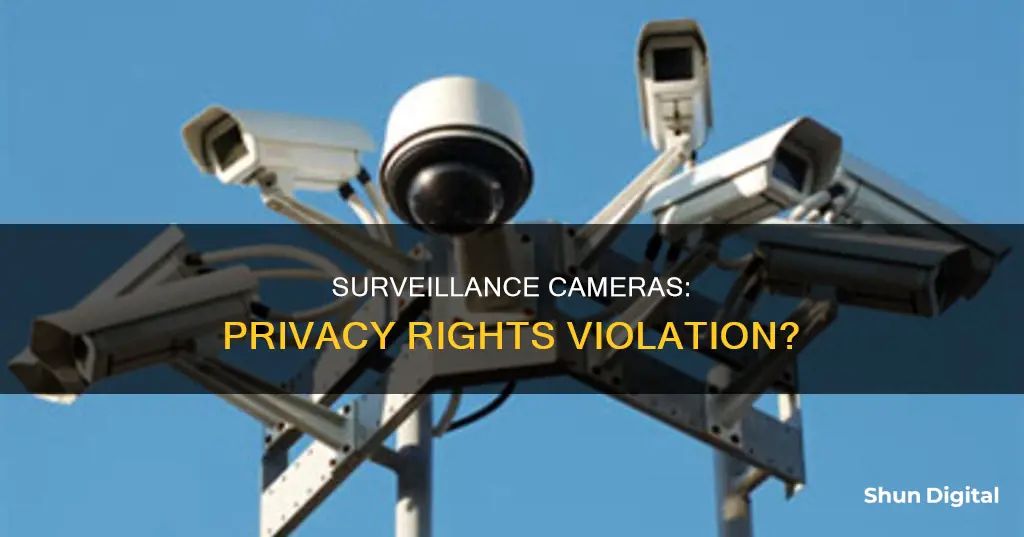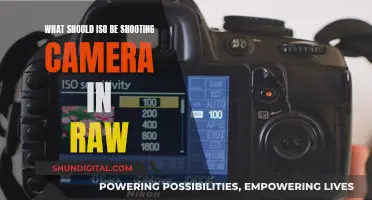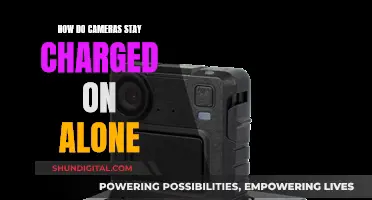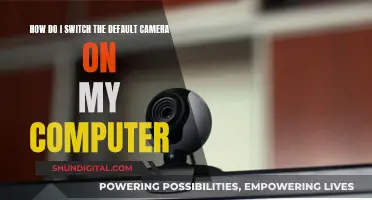
The use of surveillance cameras is a highly debated topic, with some arguing that they present an invasion of privacy, while others view them as a necessary security measure. While there is a lack of specific federal laws governing the use of surveillance cameras, certain national laws and individual state regulations exist to protect the privacy of individuals. The Fourth Amendment to the U.S. Constitution safeguards against unreasonable searches and intrusions by surveillance cameras, upholding the right to privacy where there is a reasonable expectation of it.
The legality of surveillance cameras often depends on the location and purpose of the recording. In most states, it is generally permissible to record video in public spaces, but it is prohibited in private areas such as bathrooms, bedrooms, and changing rooms, where individuals have a reasonable expectation of privacy. Additionally, consent laws vary between states, with some requiring the consent of all parties involved for audio recordings.
The placement of security cameras is also crucial, as they should not be directed towards areas where privacy is expected, such as a neighbor's house or private property. With the increasing popularity of surveillance cameras, it is essential to consider the potential privacy trade-offs and ensure their use aligns with legal and ethical boundaries.
| Characteristics | Values |
|---|---|
| Legality of surveillance cameras | There is no specific federal law governing the use of security cameras, but there are national consent and privacy laws that apply to video surveillance. |
| Expectation of privacy laws | Surveillance cameras are generally allowed in public spaces, but not in private spaces where there is an expectation of privacy (e.g. bathrooms, bedrooms). |
| Consent laws | In the US, the "one-party consent" law allows recording a conversation with the consent of at least one party. Some states have an "all-party consent" law, requiring the consent of all parties. |
| State-specific laws | Some states have stricter security camera laws than the federal government, with specific laws regarding the use of surveillance cameras. |
| Hidden cameras | Hidden cameras are generally allowed as long as they abide by the expectation of privacy and consent laws. However, some states require the consent of the person being recorded. |
What You'll Learn

Surveillance cameras in private spaces
In the United States, individuals are guaranteed a reasonable expectation of privacy, which extends to video recording. This means that certain private places, such as bathrooms, bedrooms, changing rooms, and locker rooms, are generally off-limits for surveillance cameras. Areas with a greater expectation of privacy are those where individuals typically expect to be unobserved and have a reasonable right to privacy.
The legality of surveillance cameras in private spaces also depends on whether the cameras are hidden or in plain sight. Hidden cameras are generally allowed as long as they do not violate the reasonable expectation of privacy. However, some states have stricter laws, requiring consent for hidden cameras in private places.
When it comes to audio recording, the laws become even more stringent. The one-party consent law allows recording a conversation with the consent of at least one party, but some states have all-party consent laws, requiring the consent of all participants.
It's important to note that the laws regarding surveillance cameras can vary by state and county, so it's essential to refer to local regulations. Additionally, while outdoor cameras on private property are generally permissible, they should not be directed towards neighbouring properties, especially areas where there is an expectation of privacy, such as inside a neighbour's home.
In summary, while surveillance cameras in private spaces may serve a legitimate security purpose, they must be used with caution and in accordance with applicable laws and regulations to avoid violating the right to privacy.
Unlocking Zoe Camera Mode: A Guide to Creative Photography
You may want to see also

Consent laws
While there is no specific federal law governing the use of security cameras, consent laws are a crucial aspect to consider when installing surveillance equipment. Consent laws dictate whether it is legal to record someone on video or audio without their permission, and these laws vary between the federal and state levels.
Federal Consent Laws
At the federal level, it is legal to record a conversation—either in person or over the phone—if there is at least one person's consent. This is known as the "one-party consent" law, and it applies to both audio and video recordings. In other words, as long as you are part of the conversation, it is generally legal for you to record it.
State Consent Laws
However, consent laws can differ significantly from state to state. For example, some states have stricter "all-party consent" laws, which require the consent of all parties involved in a conversation for recording to be legal. These states include California, Delaware, Florida, Illinois, and Maryland, among others.
Additionally, certain states have specific laws regarding hidden cameras and consent. For instance, in Alabama, it is considered an aggravated offense to record anyone without their prior express written consent if they are in a place where they have an expectation of privacy.
When installing surveillance cameras, it is essential to be mindful of the consent laws in your state or jurisdiction. In general, you should avoid placing cameras in areas where individuals have a reasonable expectation of privacy, such as bathrooms, bedrooms, and changing rooms. If you are placing cameras in public areas, it is advisable to post clear signage indicating that the area is under video surveillance.
By following consent laws and respecting individuals' privacy, you can help ensure that your use of surveillance cameras remains legal and ethical.
Plenum Cables for DVR Surveillance Cameras: What You Need to Know
You may want to see also

Privacy expectations in public
The concept of privacy in public spaces is a complex issue, and the development of technology has further complicated the matter. While it is generally understood that there is no expectation of privacy in public, this notion has been challenged by the advent of mass surveillance. The question arises: do hidden mechanized observers have the right to indiscriminately create permanent records of every person's actions?
From a legal perspective, courts have addressed the issue of privacy expectations in public, with the Fourth Amendment providing protections for U.S. citizens. The amendment specifically mentions persons, houses, papers, and effects as areas safeguarded from warrantless searches. Additionally, the Supreme Court has ruled that individuals have a reasonable expectation of privacy regarding their bodies, clothing, and personal belongings.
The landmark case of Katz v. United States established a two-part test to determine when the public has a general expectation of privacy: firstly, the individual must have an expectation of privacy in the given situation, and secondly, society at large must recognize this expectation as reasonable. This test assists courts in deciding whether law enforcement has violated an individual's reasonable expectation of privacy.
While it is generally accepted that people have a reasonable expectation of privacy in their homes, hotel rooms, certain areas of jails, and specific areas of motor vehicles, this expectation varies in public spaces. Public places such as streets, public buildings, and areas of a residence that extend beyond the fenced yard are generally not considered private.
However, the use of security cameras in public spaces adds a layer of complexity. In most situations, installing security cameras is legal, as long as they do not violate an individual's expected privacy. There are federal consent laws and expectation of privacy laws that govern the use of security cameras. Generally, it is legal to record video in public spaces, but audio recording laws vary by state.
The concept of "reasonable expectation of privacy" is crucial. Individuals should consider their own privacy standards and those of their guests when placing security cameras. Areas like bathrooms, bedrooms, changing rooms, and locker rooms are typically considered private, and security cameras should be avoided in these locations.
In conclusion, while there may be some expectation of privacy in public, it is important to recognize that this expectation is different from the privacy expected in private spaces. The use of security cameras in public spaces must consider legal implications, particularly regarding consent and privacy expectations.
Camera LED: Why Does It Blink Without a Battery?
You may want to see also

Surveillance in the workplace
Legal Restrictions on Workplace Monitoring
In the United States, there are two main restrictions on workplace monitoring: the Electronic Communications Privacy Act of 1986 (ECPA) and common-law protections against invasion of privacy. The ECPA, an amendment to the federal Wiretap Act, prohibits the interception of oral, wire, and electronic communications but contains several exceptions. These include the business purpose exception, which permits monitoring with a legitimate business purpose, and the consent exception, which allows monitoring with employee consent.
Surveillance Methods
Surveillance methods in the workplace can include monitoring telephone calls, email and text communications, internet use, and video surveillance. Employers may also monitor the location of employees using GPS technology and track the online activity of remote workers.
Best Practices for Employers
To avoid legal challenges and respect employee privacy, employers should:
- Only use video surveillance when justified by a legitimate business purpose, such as preventing theft or investigating misconduct.
- Limit video surveillance to the least intrusive time, place, and method.
- Use visible cameras or inform employees in writing that hidden cameras may be used.
- Obtain written employee consent for video surveillance.
- Refrain from using video surveillance in areas where employees have a reasonable expectation of privacy, such as bathrooms, locker rooms, and lounges.
- Comply with state and local laws dealing with video surveillance.
- Treat information obtained through video surveillance as confidential.
Impact on Employees
The impact of workplace surveillance on employees is mixed. While some employees feel comfortable with being monitored, others express discomfort and concerns about privacy. Workplace surveillance has been linked to increased feelings of burnout, micromanagement, and stress among employees. It can also negatively affect company morale and the relationship between employees and employers.
In conclusion, while surveillance in the workplace can serve legitimate business purposes, it is important to carefully consider its potential impacts on employees' privacy and well-being. Employers should strive to balance their monitoring activities with respect for their workers' rights and expectations.
Traffic Camera Enforcement: Red Light Tickets Explained
You may want to see also

Surveillance by private citizens
The use of surveillance cameras by private citizens is a complex issue that raises questions about privacy, security, and legal implications. While there is no specific federal law governing the use of surveillance cameras, certain national laws and regulations exist to protect individuals' privacy and consent rights. Here are some key considerations regarding the use of surveillance cameras by private citizens:
Privacy Expectations:
Private citizens should be mindful of their neighbours' and guests' reasonable expectation of privacy. Cameras should generally not be placed in areas where privacy is expected, such as bathrooms, bedrooms, changing rooms, or guest rooms. It is illegal to record individuals without their consent in places where they have a reasonable expectation of privacy.
One-Party Consent Laws:
Federal consent laws allow recording conversations or in-person interactions as long as one party consents. This means that private citizens can record conversations or interactions they are a part of. However, some states have all-party consent laws, requiring the consent of all participants.
State and Local Regulations:
Specific laws regarding surveillance cameras vary by state and county. Some states, like California, have stricter laws prohibiting the recording of confidential communications. It is essential to review local laws before installing surveillance cameras to ensure compliance.
Indoor Surveillance:
The use of hidden cameras indoors is generally legal as long as they abide by privacy and consent laws. Nanny cams, for example, are commonly used to monitor children or hired help. However, it is important to consider the potential ramifications of recording guests or employees without their consent.
Outdoor Surveillance:
Outdoor cameras on private property are typically permitted as long as they do not infringe on neighbours' privacy. Cameras should not be directed towards neighbours' homes or windows, as this violates their reasonable expectation of privacy.
Surveillance for Security Purposes:
The primary purpose of surveillance cameras is often security and protection. As long as cameras are placed in appropriate locations and used responsibly, private citizens can protect their homes and properties without invading others' privacy.
In conclusion, while surveillance cameras can be a valuable tool for private citizens, it is crucial to respect the privacy and consent rights of others. Private citizens should familiarise themselves with applicable laws and regulations to ensure their surveillance practices are legal and ethical.
The Polaroid SX-70 Land Camera: A 70s Innovation
You may want to see also
Frequently asked questions
Surveillance cameras do not inherently violate the right to privacy. However, there are laws surrounding their use, particularly in private spaces.
You are not allowed to put security cameras in places where there is an expectation of privacy, such as bathrooms, changing rooms, hotel rooms, and bedrooms.
No, it is not a requirement to post a sign if you have security cameras. However, it is recommended to avoid potential consent issues.
It is not illegal to have cameras with audio. However, in many states, it is illegal to record someone without their consent, especially indoors.







